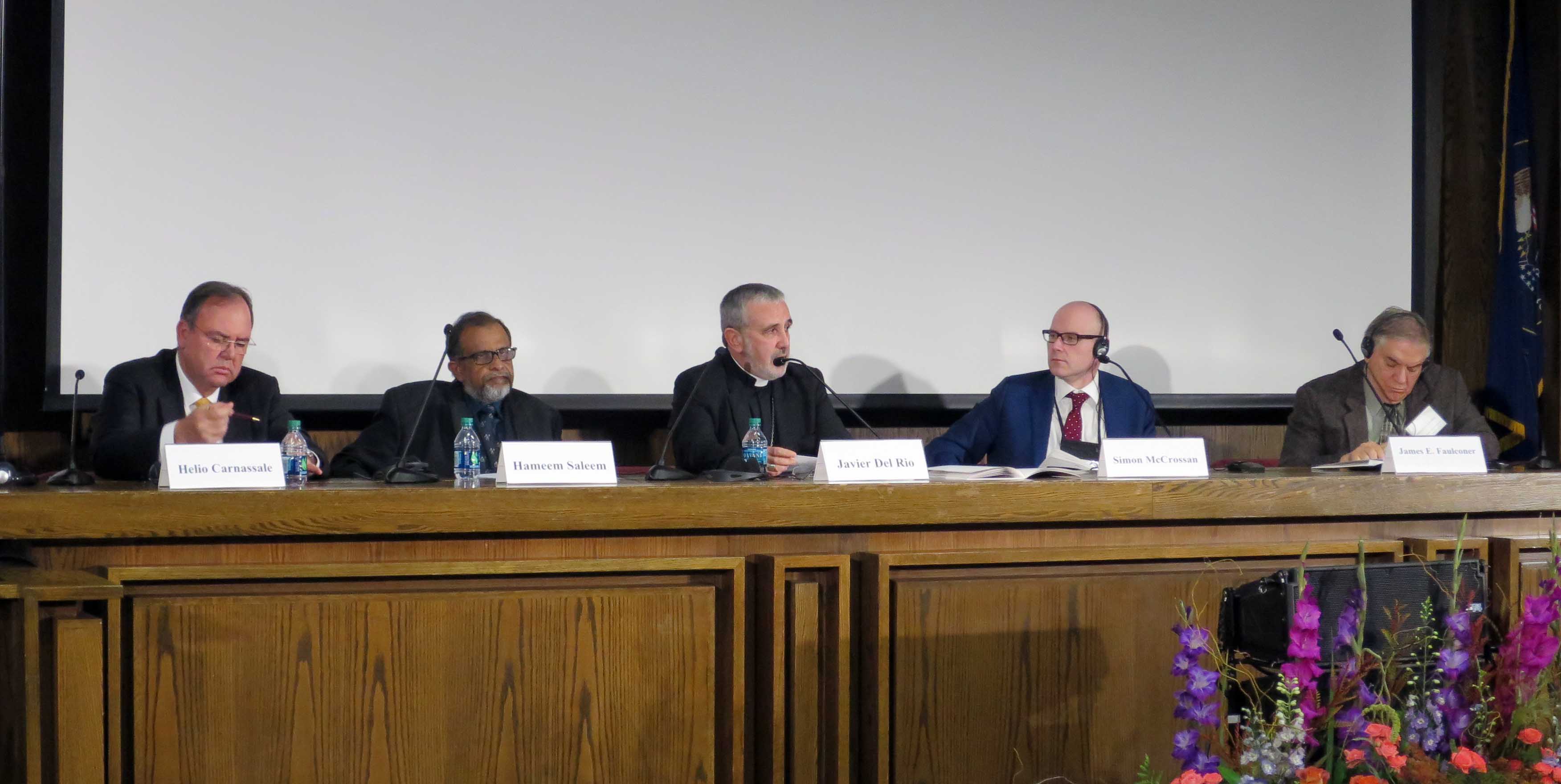Symposium 2016: Interreligious Cooperation, Religious Rights, and Pluralism (Session One)

by Alexander Alton
The breakout session on Interreligious Cooperation, Religious Rights, and Pluralism was held on Monday, October 3, 2016 and moderated by James Faulconer, Professor of Philosophy and Richard L. Evans Chair of Religious Understanding at Brigham Young University. The panel featured Archbishop Javier Augusto Del Río of Arequipa, Peru; Vice-President –I Hameem Mohamed Saleem of Jamiyah, Singapore; Simon McCrossan, Barrister and Head of Public Policy at the Evangelical Alliance in the United Kingdom; and Hélio Carnassale, Director of Public Affairs and Religious Liberty for the South American Division of the Seventh-day Adventist Church.
Archbishop Del Río explained how religious liberty is a fundamental human right derived from the idea of basic human dignity. It allows men and women to live their private and social lives in accordance with their own beliefs and conscience. He suggested that limitations on religious liberty naturally create or permit injustice in society. Archbishop Del Río lamented the fact that governments around the world seem to be doing less to protect religion. He then shared an example of how various religious and political leaders in Peru successfully joined forces in 2014 to create the Peruvian Compromise, which promotes the rights of life, marriage and family, religious liberty, and the rights of parents to teach their children.
Vice-President Saleem lectured on the history of Singapore as a multiracial and pluralistic city state. He explained that Singapore’s racial and cultural diversity come from its history as a trading hub, emphasizing that the country was not only open to the flow of goods, but also to the flow of knowledge, cultures, religions, and traditions. Today, Article 15 of the Singapore Constitution guarantees religious freedom. Multiple governmental and religious organizations seek to create harmony with respect to racial and religious issues. Singapore even has a Presidential Council for Religious Harmony. Thus, even though Singapore is considered the world’s most religiously diverse nation, the country is continually working to maintain an environment of tolerance and respect.
Simon McCrossan described a disconcerting trend in the United Kingdom’s counter-extremism strategies. He contends that the state is no longer the “broker for freedom of religion and belief, looking to protect religious freedom for everyone;” rather, “the state has become the arbiter of the definition of religion.” Thus, the UK is limiting freedom of thought. Some ideas are seen as acceptable; other ideas are seen as extremism that must be quashed. After expounding on this problem, Mr. McCrossan explained how the Evangelical Alliance is working together with The Church of Jesus Christ of Latter-day Saints to promote the idea that freedom of religion is a fundamental human right for all.
Hélio Carnassale focused his presentation on the fact that, even though Brazil is one of the lowest-scoring countries on religious persecution indexes, there is still much room for growth in terms of religious liberty. He explained the history of religious education in public schools in Brazil. He then explored various ideas of how to best provide for diversity of religious education in Brazil.